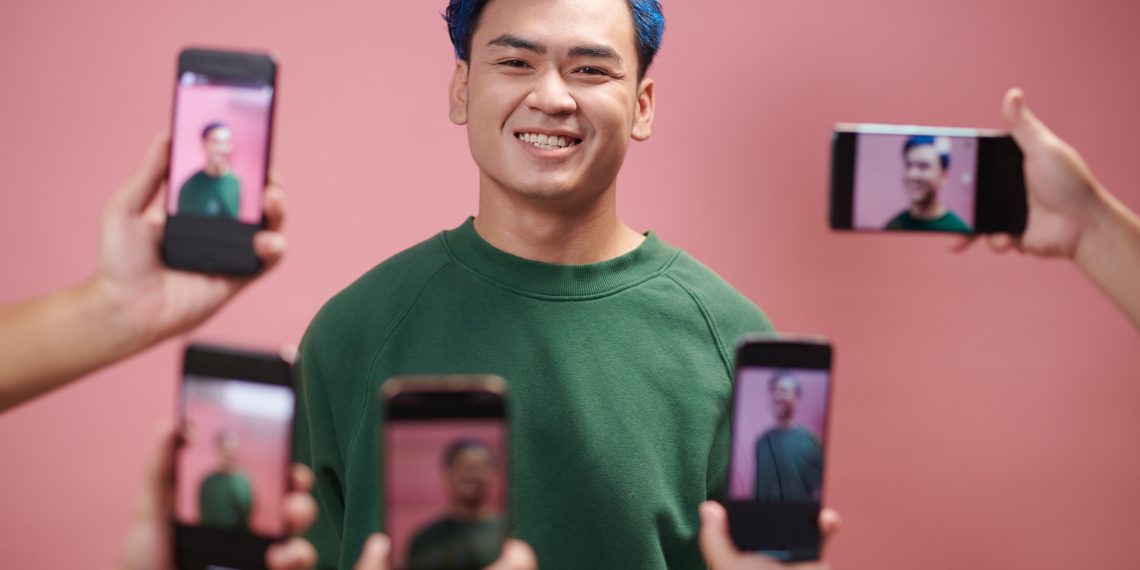Charting the Shift from Monolithic Icons to Personalized Stardom in the E-commerce Era
Pop culture has been on a roller coaster, and it’s not just about the music. Back in the day, the likes of Madonna and Michael Jackson were untouchable, their every move shrouded in mystery. Fast forward to the 2000s, and it’s clear that the times are a-changin’. The rise of social media platforms like Twitter and Instagram has brought fans closer to their idols than ever before. No longer are celebrities distant figures; they’re now tweeting from their couches, sharing filtered snapshots, and live-streaming their thoughts at a whim. The 2010s have been a turning point, with a direct line to stars’ lives, blurring the line between fan and friend. This digital intimacy reflects a broader societal shift towards personalized experiences in various spheres, including retail. It’s a shift that mirrors the retail world’s transition from big-box stores, where choice was limited and personalization nil, to the wild frontier of e-commerce. Just like Amazon’s suggestions that seem to read your mind, today’s stars are all about connecting personally with their audience. This is especially evident in the music industry, where gone are the days when a single female rapper could dominate the charts – now, there’s room for multiple queens, from Nicki Minaj to Cardi B and beyond, each artist carving out their own niches and fan bases. Even established icons are not immune to the changing tides, with artists like Katy Perry and Justin Bieber finding their once-certain ground less steady, making way for new talents who resonate with a generation that prizes relatability over unreachable perfection. This democratization of stardom is reshaping how celebrities interact with their audience, laying the foundation for new paradigms in fan engagement and celebrity-driven e-commerce.
Personal Connections and Authentic Interactions as the New Currency of Fame
Authenticity is the new black in pop culture. Gen Z, those digital natives born with a smartphone in hand, don’t just want their stars to entertain; they want them to be real. This crowd can smell a fake a mile away and will call it out with a hashtag before you can say ‘public relations nightmare.’ They crave transparency and expect moral responsibility, holding celebrities accountable in ways that would’ve been unheard of in the age of glossy tabloids. This authenticity extends to how stars navigate their careers. With the likes of Billie Eilish and Reneé Rapp resonating deeply with fans for their unfiltered expressions, it’s clear that the artifice of yesteryears’ pop idols is no longer en vogue. This demand for genuine interaction has spurred celebrities to share more personal content, revealing the people behind the personas. And let’s not forget the brands, who are now hopscotching to partner with celebrities that not only have reach but also stand for something. This has led to a confluence where celebs, like savvy e-commerce brands, are learning that to stick around, they have to do more than just show up; they have to show who they are, warts and all. It’s a currency that’s not just reshaping retail, but redefining stardom itself. The once-clear boundaries between public and private lives have become porous, as audiences seek to connect with the human experiences and values that their favorite celebrities embody, thereby forging stronger, more meaningful connections that transcend traditional fame.
Embracing the Flourishing Diversity in Pop Culture and Retail
Pop culture’s embrace of diversity is like a mirror reflecting the endless aisles of online stores. Female rap’s explosive growth is notable in this regard. Once, a single female rapper at the top was the unspoken rule; now, the genre boasts a pantheon of goddesses, each with her own throne. The streaming era has democratized music, allowing artists from all corners of the globe to pop up on playlists, breaking down barriers and bringing a kaleidoscope of sounds to our earbuds. Just as streaming services have made it possible for a diverse array of musical talents to flourish, so too have e-commerce platforms like Etsy and Shopify revolutionized the market for small businesses. These platforms empower a myriad of small businesses to find their audience without the gatekeeping of physical retail space. The diversification of pop culture and retail illustrates a growing appetite for varied and customized content and products that speak to individual tastes and identities. This shift from a monolithic pop culture scene to a multi-faceted mosaic parallels the way we shop – no longer confined to the local mall, our horizons have expanded to include the entire world, offering a broader spectrum of representation and choice that reflects the diversity of the global community.
Adapting to the Algorithm and How Artists Navigate the Fragmented Pop Culture Landscape
If pop culture were a GPS, algorithms would be the voice telling us where to turn next. These digital formulas have taken the driver’s seat, mapping out what we watch, listen to, and buy. Streaming services like Spotify and Netflix have made ‘Top 40’ lists and primetime slots almost obsolete. Mono-culture is out; personalized playlists and ‘Because You Watched’ recommendations are in. The media landscape is fragmented, a choose-your-own-adventure book where every reader ends up on a different page. In this environment, an artist’s ability to harness data and engage with their audience through algorithm-savvy means has become critical. Artists today have to be nimble, adapting to trends and algorithm changes quicker than they change stage outfits. Just look at the longevity of stars like Beyoncé and Ariana Grande, who have managed to keep the spotlight by staying in lockstep with their audience’s evolving tastes. Their success underscores the importance of an adaptive strategy, not only in keeping with trends but also anticipating them, always staying one step ahead of the next swipe or click. In this brave new world, the key to survival for both stars and businesses is not just to adapt, but to predict and innovate, ensuring that they remain relevant in an ever-shifting digital landscape where the next big thing is always just around the corner.
In the new age of e-commerce stardom, the storefront is virtual, the brands are personal, and the shoppers are followers. Celebrities today have to be more than just a pretty face on a magazine cover; they need to be the relatable, authentic person who can sell out a line of skincare products with a single post. As the retail landscape continues to evolve, expect to see more celebs leveraging their personal brands to tap into the lucrative world of e-commerce, where authenticity sells and personal connections are worth their weight in gold. The stars of yesterday were larger than life; the stars of today are just one DM away. With each post, tweet, or story, they weave their narratives into the daily lives of their followers, creating an ongoing dialogue that is reshaping the very fabric of celebrity influence and paving the way for a new era of digital intimacy and personalized engagement.










